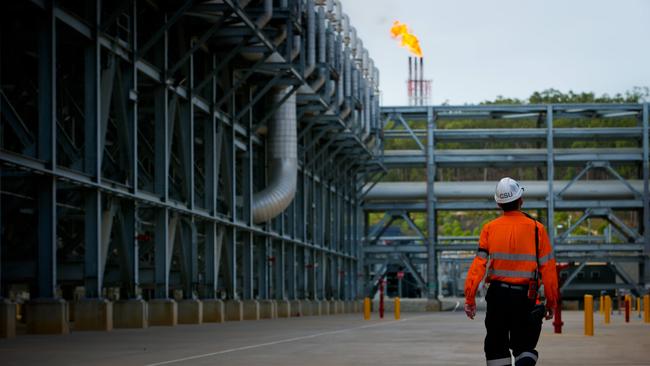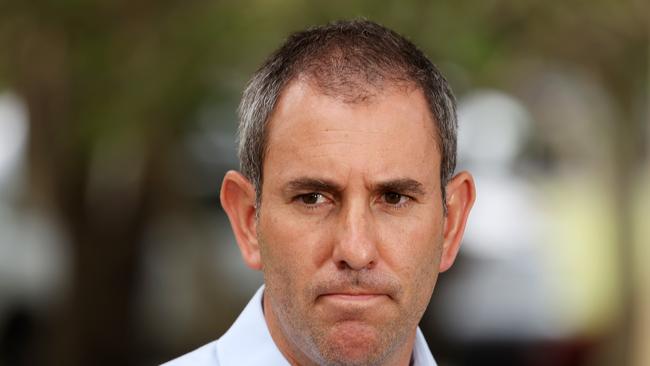ACCC edict on law of supply and command
The consumer watchdog says it will punish any gas producers withholding supply from the domestic market - as providers say they haven’t received any guidance on the new price caps.

The consumer watchdog has warned it will punish gas producers if they withhold supply from the domestic market, amid mounting pressure and confusion over the Albanese government’s snap intervention into the energy market.
The Australian Competition & Consumer Commission’s warning comes after The Australian revealed multiple energy retailers across the eastern seaboard had stopped taking new gas customers and others were ramping up prices as they struggled to secure supply from producers following Labor’s imposition in December of a $12-a-gigajoule, 12-month price cap on wholesale gas.
Multiple gas producers hit back on Monday at the ACCC’s failure to provide any guidance on how to implement the cap and said they were effectively stuck in a holding pattern given the dearth of information in the market.
Business groups in gas-intensive industries told producers to stop “game-playing” and resume offering supply, with one managing director saying the future of his business was in doubt after his gas contracts went from $7/GJ five years ago to nearly $40/GJ this month.
The ACCC pledged to publish interim compliance and enforcement guidelines soon so the gas industry could know its obligations. But the watchdog said it would crack down on any suppliers it believed were running “avoidance schemes” to get around the price caps.
“If we become aware that gas is not being made available and there is evidence that it was planned, or likely, to be available, or is being offered on terms which effectively equate to a refusal to supply, we will investigate whether that conduct may amount to an avoidance scheme,” an ACCC spokesman said on Monday.
“Such conduct could also risk breaching the misuse of market power, or other provisions, of the Competition and Consumer Act.”
The maximum penalty for a company that breaches the price cap order is $50m, or three times the value of the benefit obtained, whichever is the larger amount. If that value cannot be determined, the company must pay 30 per cent of its turnover during the period it breached the price cap.

Jim Chalmers warned gas producers the consumer watchdog was closely monitoring their behaviour, while conceding it had been challenging for some companies to negotiate new gas agreements over Christmas.
“When it comes to the last few weeks, we appreciate the challenges that some companies have faced to negotiate new gas agreements over the Christmas holidays,” the Treasurer said.
“We expect the gas producers to act properly to implement the temporary price cap and the ACCC is closely monitoring the behaviour of the gas producers to make sure that they’re consistent with their obligations under that temporary price cap and under the ADGSM (Australian Domestic Gas Supply Mechanism) as well.
“Under the heads of agreement, those gas companies have committed to offering an extra 157 petajoules of supply to the east coast market in 2023; that’s almost three times the forecast shortfall. And the gas price cap is expected to put downward pressure on forecast price increases as these changes flow through to retail supply contracts, reducing those average price increases over time.”
Resources Minister Madeleine King can trigger the ADGSM, which has not yet been used, if there is a gas supply shortfall forecast for Australia.
Ms King’s spokesman said there was “room for conversations” about what gas reservation schemes could be pursued on the east coast but the government’s focus was on energy price relief.
Dr Chalmers left open the possibility of changing the price cap, with a review of the mechanism due mid-year.
Several gas suppliers said on Monday they had been left with no choice but to pause offers into the market. The Gina Rinehart-backed Senex Energy said future contracts related to Queensland’s $1bn Atlas expansion project – aimed at boosting east-coast supplies – remained suspended nearly a month on from its original decision to freeze talks. It blamed the intervention as arbitrarily dictating investment returns for gas producers.
Woodside said it had completed marketing activities for gas from the Bass Strait for 2023 prior to the introduction of the price cap and would continue to offer available gas for 2023 to the spot markets if it had capacity.
“Woodside notes that, at present, its east-coast gas buyers are not taking their full daily contractual entitlements of gas, which is flexibility permitted under sales arrangements,” a Woodside spokeswoman said. “Woodside remains in discussions with buyers for sales pertaining to 2024 and beyond. Agreements that were ready to be executed in late 2022 for 2024 supply were paused, including at buyers’ request, pending the ACCC issuing detailed explanatory notes about the new market rules, expected in the first quarter.”
Aditya Jhunjhunwala – managing director of magnesium oxide producer Causmag International, based in Young in regional NSW – said his company’s fixed price, $22.64/GJ gas supply contract with retailer AGL had expired at the end of 2022.
“Just as your newspaper has reported today, AGL has forced us to pay a default market rate from the beginning of this month. That rate is $39.67/GJ,” Mr Jhunjhunwala said. “Historically we used to pay less than $7. When the default rate kicked in this month, we were forced to suspend the manufacture of our main product.
“We have pleaded with AGL to reduce the default rate to the Sydney spot market rate, plus a reasonable margin, but there has been no positive response yet. Other retailers have informed us that their position is also the same as AGL’s.”
Mr Jhunjhunwala said the company, which employs 29 people, had already been in financial trouble as a result of high gas prices, and had been forced to reduce its employees’ hours.
Energy Users Association chief executive Andrew Richards said members in energy-intensive industries were “the victims in this”.
“We know there’s plenty of gas because the gas industry’s committed to supplying it,” Mr Richards said. “They just don’t want to sell it at a cap price of $12, which would still deliver them a 100 per cent mark-up on average cost of production. This industry just fails the pub test at every turn.”
AiGroup chief executive Innes Willox, said that while coal and gas price caps had had a “large and obvious” impact on wholesale electricity futures, gas users had not yet seen any price relief.
“The vast majority of Ai Group’s gas-using members are already contracted for at least part of 2023, but those who were seeking new gas contracts in December 2022 were told that upstream suppliers were not making offers until they understood the price caps,” Mr Willox said.
“A pause to take stock of major rapid regulatory changes is understandable. However at some point due caution becomes foot-dragging, and will be seen as game-playing … While design of the mandatory gas code of conduct may take several more months, the emergency price cap for 2023 is already perfectly clear. There has now been plenty of time for gas producers to absorb legal advice. There’s no clear reason why offers for supply in 2023 should not quickly resume.”
Samantha McCulloch, chief executive of the Australian Petroleum Production & Exploration Association, which represents gas producers, said Australia needed new gas investment to ensure security of supply and put downward pressure on prices. “Instead we are seeing a chilling of the market because of the government’s intervention,” she said.
“The gas industry has sought clarification of a number of practical questions and issues regarding the implementation of the price cap and we are still waiting for guidance from the regulator.
“The lack of clarity on how the price cap order is to be applied alongside the threat of permanent gas price regulation has virtually paralysed the market.”







To join the conversation, please log in. Don't have an account? Register
Join the conversation, you are commenting as Logout